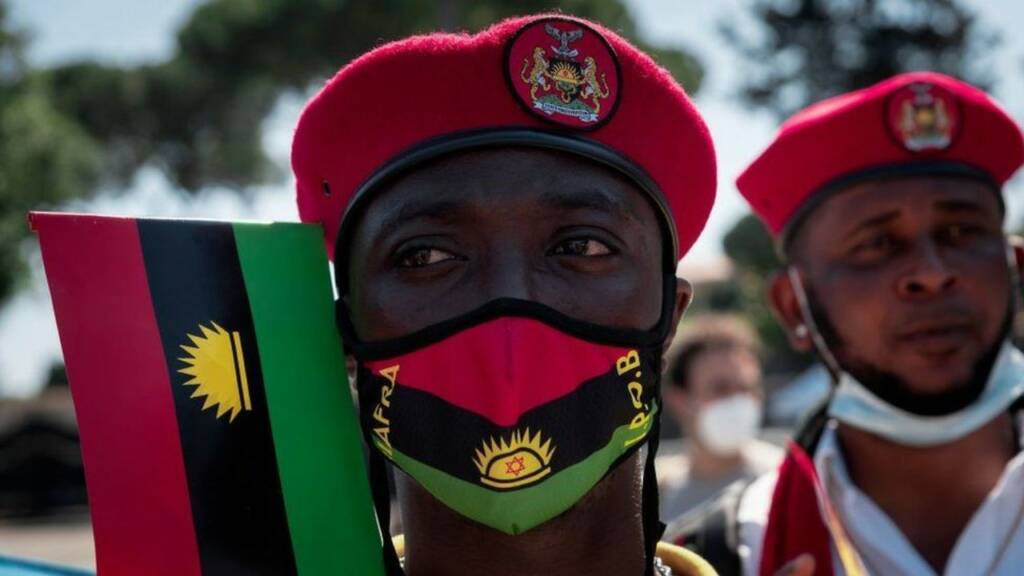In our previous articles, we extensively discussed the Biafra movement, its historical roots, and the current status of the crisis. We also elaborated on France’s initial support and subsequent withdrawal of commitment to the movement. In this final piece, we will examine the future of the Biafra movement in Nigeria and its potential implications for the country and the people of the Biafra region.
Biafra movement and what the future holds
Africa is a diverse continent comprising numerous ethnic groups, estimated to be around 3,000 and speaking more than 2,100 different languages. The ethnic landscape is shaped by a legacy of colonialism and the slave trade, leading to the blending of different cultures and the formation of new ethnic groups. However, the colonial powers did not consider the tribal divisions while drawing national boundary lines, leading to the overlapping of tribes in multiple modern-day countries.
These ethnic divisions have resulted in many clashes in African countries, and the Biafra movement is an example. As explained in the previous article, the demand for separation from Nigeria may not always reflect popular sentiment. The calls for the boycott of the 2023 elections in Nigeria by Biafra secessionist leaders were condemned by various groups. Therefore, the future of the Biafra movement is marked by potential challenges and hurdles, although it is premature to reach any conclusion.
Read More: France’s geopolitical calculations and the Biafra question: Unravelling the puzzle
Challenges ahead
The Biafra movement has a long history dating back to the 1960s, and the Nigerian government has taken measures to prevent secession, including military action. If Biafra were to secede from Nigeria, there could be potential disadvantages and challenges that may arise. What are these challenges and disadvantages? Let’s discuss
Political Instability
Many African countries have struggled with democracy, as it takes a lot to earn political stability. However, years of progress can be squandered in just a few days, especially in a continent beset with conflicts and crises. As seen in the case of the Tigray crisis, which lasted for two years and devastated Ethiopia, leading to the destruction of its economy and infrastructure.
Therefore, the process of secession of Biafra could lead to further political instability, and it may lead to the formation of new political entities.
Read More: A transformative era: Abiy Ahmed’s reforms reshape Ethiopia
Natural Resources
The region known as Biafra in South-eastern Nigeria is rich in natural resources, including crude oil, natural gas, coal, limestone, and other minerals. In particular, the Niger Delta region, which includes parts of Biafra, is rich in oil and gas deposits.
However, such a resource-rich region is bound to face challenges related to the equitable distribution of wealth and the sustainable development of resources. Moreover, it wouldn’t be easy for the region to escape the hawkish eye of the West, which is known for plundering and looting Africa’s resources.
Leadership issue
Furthermore, the Biafrans also lack solid leadership. In the absence of strong leadership, there is no clear vision of how the “Biafran Republic” would be governed or what its style of governance would look like. Demanding separation based solely on ethnic lines could create chaos in the absence of strong political and economic foundations.
A strong foundation of a modern state is built on far-sighted ideas of governance, while a myopic vision of a state based solely on ethnic identities may find it hard to survive in the modern globalized world in the long run. In addition, gaining international recognition for a separate Biafra would be a major challenge and may not be guaranteed. It could also be difficult to establish trade relations and gain access to international aid and resources.
It was denounced on the grounds that it would create fear and disenfranchise the community. This shows that Biafran elders have somehow realized that the solution lies in dialogue. Therefore, both sides must come forward to attain a middle ground and settle for a peaceful negotiation that safeguards the interests of both parties. Ultimately any decision to pursue secession would need to carefully consider these factors and weigh the potential benefits against the risks and challenges.
Read More: The Biafra Enigma: Decoding the Roots of Nigeria’s Separatist Movement
Moving forward, it will be interesting to see how the newly elected Nigerian President, Bola Tinubu, tackles the problem of insecurity in Nigeria. It remains to be seen whether his administration will be able to address the underlying causes of conflicts and bring about a lasting solution or whether insecurity will continue to persist without a definite end.
https://www.youtube.com/watch?v=jzr-BCYUpX4
